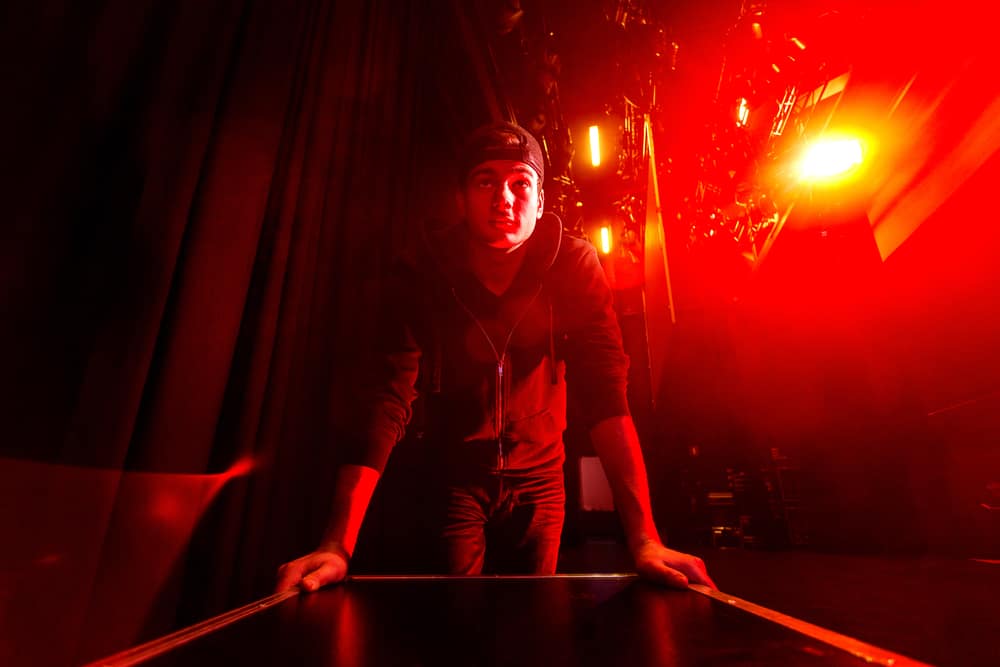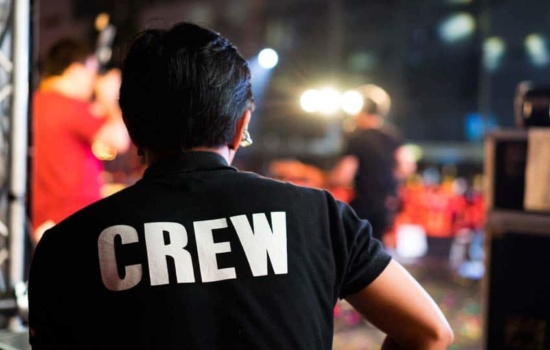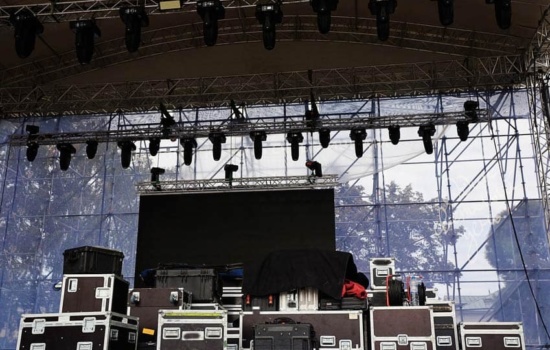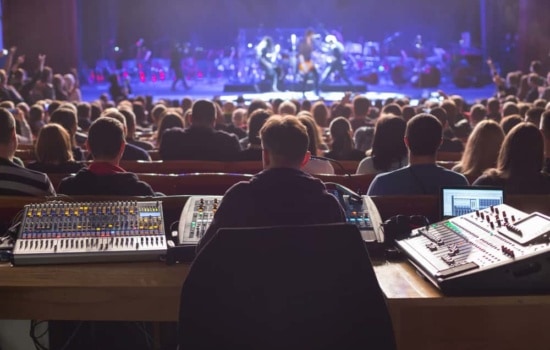Stagehands do the manual labor of loading and unloading trucks full of gear, moving it in and out of the venue, and assisting with the set-up and tear-down of the stage and the equipment used in concerts, theater productions, theme parks, sports events, and even film and TV productions.
Usually, stagehands are local workers, often in a labor union. If they’re part of a road crew for a touring production, in which case they’d be called roadies or touring concert professionals.
But make no mistake, stagehands are the workhorses of the music business.
In order for a show to go on, many people must labor backstage and in the hall, out of the eye of the audience.
Without stagehands, there could be no concerts or shows. They are usually the first to arrive and the last to leave. They work long hours and live by the mantra “the show must go on.”
Though stagehands are not visible to the audience, everyone in the production depends on them.






